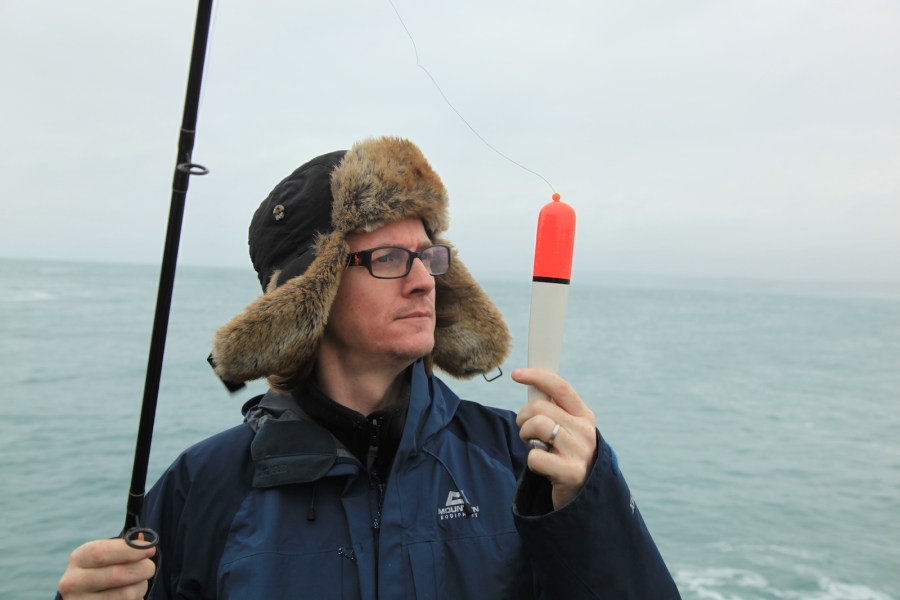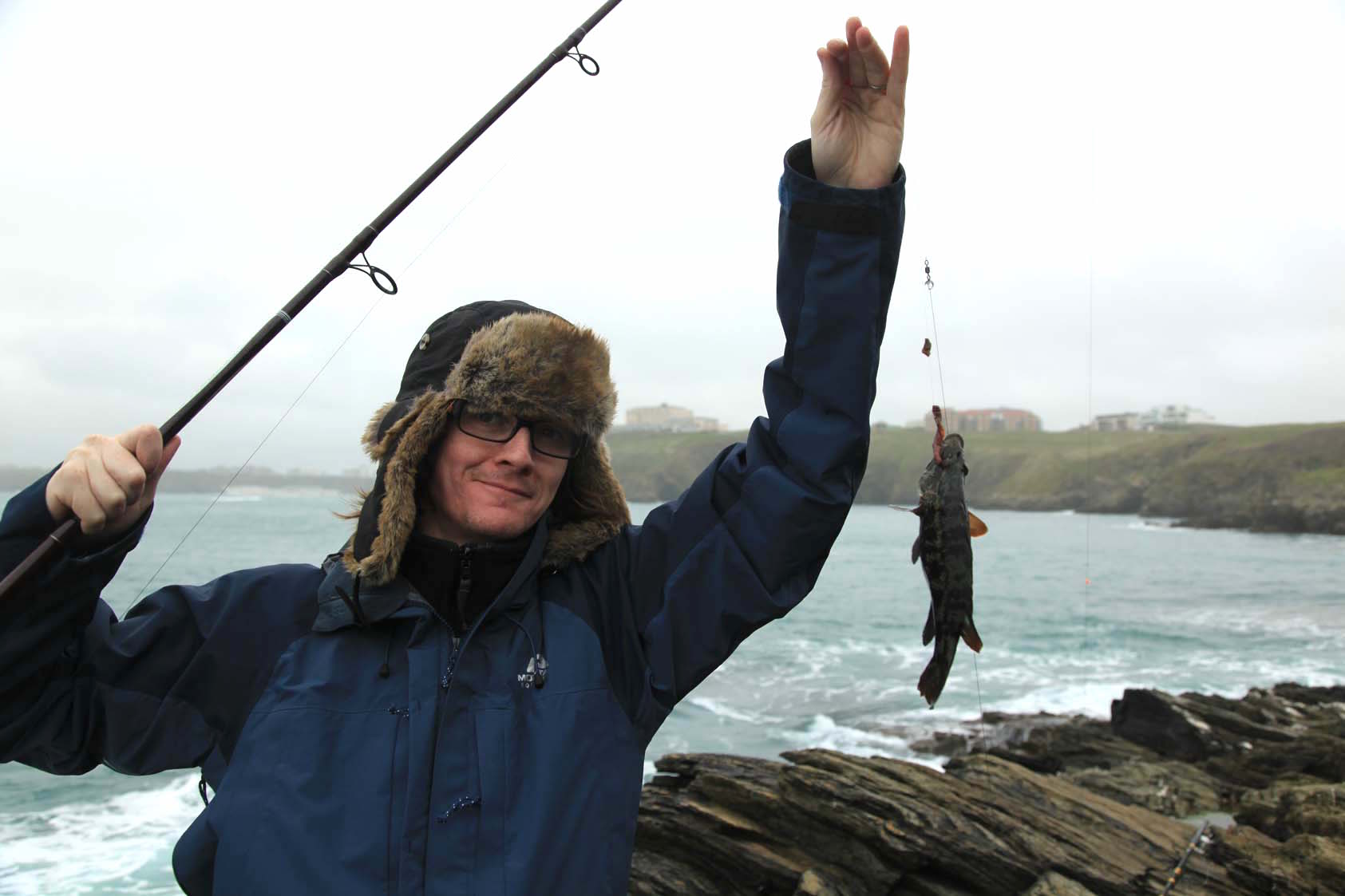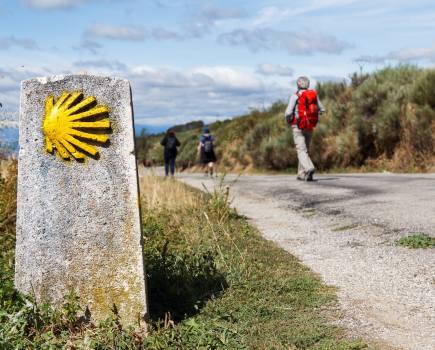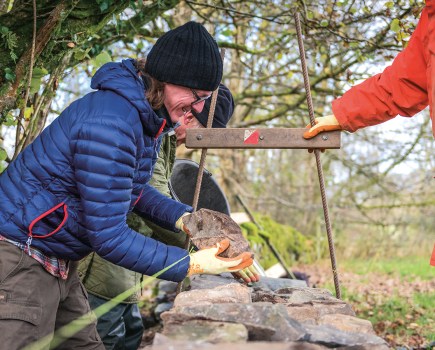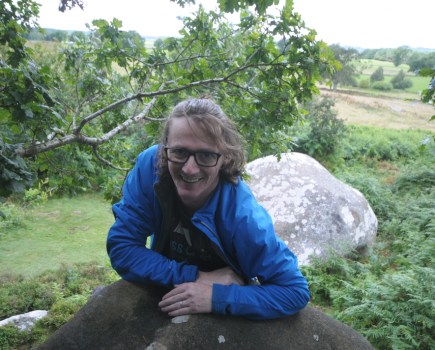In an effort to become more self-sufficient, comedian Ed Byrne tries catching his own food… it can’t be that difficult, right?
Ed Byrne is currently touring Britain with his new show, Spoiler Alert, as part of which he shares some hilarious insights into the trips he’s made into the hills for The Great Outdoors magazine. To celebrate, we are publishing one of his archive features each week as a treat for Ed’s fans and readers of The Great Outdoors.
This feature was first published in our January 2012 issue
I’ve been very much enjoying my various outdoorsy assignments for TGO. I’ve had the chance to try a host of experiences – pretty much all of which I hope to repeat –and I genuinely feel like I’ve learnt new skills that are enhancing my ability to live a life of fewer frontiers. But if I really want to consider myself an outdoorsman, it’s time I took a step towards self-sufficiency.
I’m not looking to be Ray Mears going through animal dung for nuts; I know I’ll never be Bush Tucker Man (that dude will eat things I wouldn’t even step on); but I do have a desire to be able to live off the fat of the land. And, seeing as Britain is an island, it seems logical that I should learn to fish. All that perfectly good food swimming about just offshore – and I don’t have a clue how to get it onto my camping stove. This can’t go on, so while on the road in the West Country I tasked my tour manager, Paul, with teaching me to harvest the sea’s rich bounty. Paul, I should point out, is a keen fisherman; I didn’t just insist that in his capacity as my tour manager he must also learn how to fish in order to be able to teach me.
This guy in the tackle shop was 99.9% fisherman, 0.1% shopkeeper
Our first stop is the tackle shop – not just to purchase hooks and bait and the like, but also to obtain information on where would be a good place from which to cast. Paul has already had a friend recommend a particular tackle shop in Truro where, if we drop his name, they’ll be happy to ‘put us on a mark’. It already feels like I’m infiltrating a secret society.
The guy behind the counter admits to knowing Paul’s mate but – and I might have been imagining this – seems reluctant to reveal the really good secret spots around. With a sigh, he suggests we go to Newquay Head and describes a spot next to a car park next to a hotel. I could be more specific than that but I feel I would be betraying an intimate confidence that you readers of TGO have not earned due to the fact that Paul’s mate hasn’t vouched for you.
Information obtained and bait purchased, Paul and I remark as we leave the tackle shop that the bloke behind the counter is a member of that certain breed of people who work in specialist sports shops. You know the type: someone who works there not because they have a flair for retail or desire to serve, but because they are obsessed with the sport. You get them in ski and snowboarding shops and also a lot of the outdoors shops. People who, when you tell them where you’re going, stare at you with pure envy in their eyes. This guy in the tackle shop was 99.9% fisherman, 0.1% shopkeeper. He could tell you the exact time of day you should stop using ragworms and switch to live crab, the exact spot where bass would be lurking, but when it came to totalling up our purchases he poked at the calculator like your granny the first time she tried to send a text message.
The process of skewering these animals with the hook is exactly the sort of thing I would have loved doing when I was six years old, by which I mean it’s absolutely disgusting
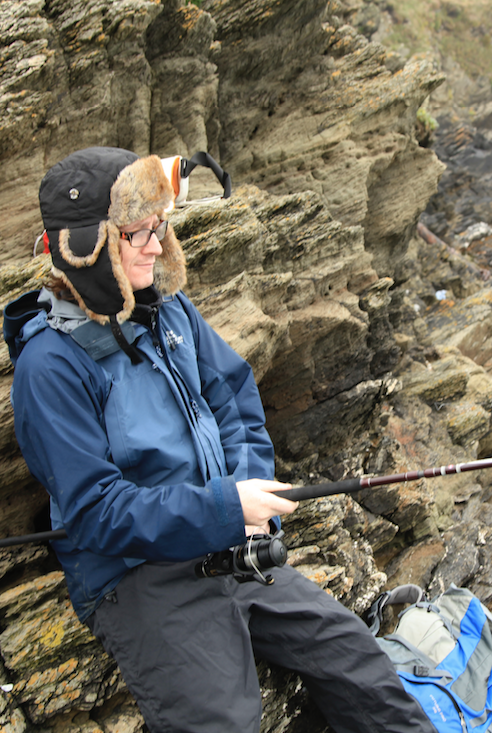 Thirty minutes later, Paul and I are scrambling over rocks to the spot described by the man in the tackle shop. “This is obviously it. Definite signs that there’s been some fishing going on here this weekend,” says Paul, gesturing towards the ludicrous amount of detritus strewn around the area. Bearing in mind I’m one of those do-gooder types who picks up other people’s cigarette butts if I find them on a summit, I am slightly taken aback by the level to which some people will eschew the ‘leave no trace’ attitude to outdoors activity. It looks like Dale Farm.
Thirty minutes later, Paul and I are scrambling over rocks to the spot described by the man in the tackle shop. “This is obviously it. Definite signs that there’s been some fishing going on here this weekend,” says Paul, gesturing towards the ludicrous amount of detritus strewn around the area. Bearing in mind I’m one of those do-gooder types who picks up other people’s cigarette butts if I find them on a summit, I am slightly taken aback by the level to which some people will eschew the ‘leave no trace’ attitude to outdoors activity. It looks like Dale Farm.
After we have tidied up a bit, Paul shows me how to bait my hook. Well, first he shows me how to attach hooks and the float to the line, a practice that involves a lot more swearing and spitting than I anticipate. It is decided that I bait with ragworm while Paul is using live crab. The process of skewering these animals with the hook is exactly the sort of thing I would have loved doing when I was six years old, by which I mean it’s absolutely disgusting. As a small boy, like other small boys, cruelty to tiny creatures was in my nature. Whether I was putting salt on a slug, pulling the wings off of a fly or making a spider listen to Chris de Burgh, I was perfectly happy torturing wildlife. Six-year-old me would have been morbidly fascinated with the action of sticking a sharp hook into the anus/mouth/eye/whatever of a wriggling worm, passing it down his gut and out somewhere near the other end. The evil little sadist that was me in the Seventies would have taken no small pleasure in the amount of yellowish fluid that oozed out of the ragworm as the hook came out through its semi-transparent skin. Thirty-nine-year-old me, however, just finds it a bit icky.
Hook baited and instructions on casting given, I am now ready to settle down to the pastime of fishing. As many have said before me, it’s called ‘fishing’ not ‘catching’. There’s no guarantee you’ll get anything, and that’s pretty much how it is all day. We sit on the rocks, tossing worms on strings into the water. Every now and then we reel them in, re-bait the hook and do it again. Sometimes there is a moment of excitement when a hook gets caught on something and the line snaps. Did I say excitement? Maybe that’s not the right word. You can always tell how bored I am by how bad the jokes are that I start coming up with. To prove this, after a few hours I suggest that we use lures instead of live bait. “Why?” asks Paul. “Because then we could generate power through Newquay lure fishin’! Get it? Nuclear fission!” Christ, I must be bored.
As dusk starts to approach we realise it is just about time to call it a day. It’s getting cold and we have a gig to get to in Truro. “I’ll just give it one more go,” I think to myself as I drop my hook into the sea just below where we are standing. Almost as soon as the hook hits the water I feel the tug of a fish. It’s like one of those people you hear about in Vegas who lose money all holiday and then drop a quarter into one of the machines at the airport, only to hit the jackpot. I reel in the line and there on the end is a wrasse, a fish I had never even heard of until today. It isn’t big, it isn’t going to make a fine dinner, but it is a fish and I have caught it. Paul is overjoyed. For him it is like Mr Miyagi watching Daniel-san crane-kick the bloke from Cobra Kai at the end of The Karate Kid. Suddenly it is all worth it. We take a few snaps, drop my haul back into the sea and pack up our gear. The mood I am in, tonight’s gig should be a stormer, provided I don’t tell the nuclear fission gag.
Five top tips for beginners to fishing
1. Location
The Environment Agency offer a range of free fiishing guides. See their website at environment-agency.gov.uk/homeandleisure. Tourist offices and local tackle shops are also hubs of information.
2. Seasons
Seasons vary depending on location, species and local bylaws. As a general rule most game species can be caught from March until October, coarse fishing is available from June to March, and sea fishing throughout the year.
3. Licenses
When fishing in UK inland freshwater, an Environment Agency Rod License will be required, available from the Post Office.
4. Tackle
Basic tackle consists of a rod, reel and line. Call into a tackle shop for advice regarding equipment and bait, based around the fish you hope to catch.
5. Bait
Garden worms, maggots and bread are great coarse fishing baits. Try squid or crab in the ocean, and if you don’t like the idea of messy baits, try fly fishing!
Walk through some of the most unspoilt countryside in the UK while learning to cast a fly with qualified instructor Nick Hart. Call 01398 323008 or see nickhartflyfishing.com for further information.

